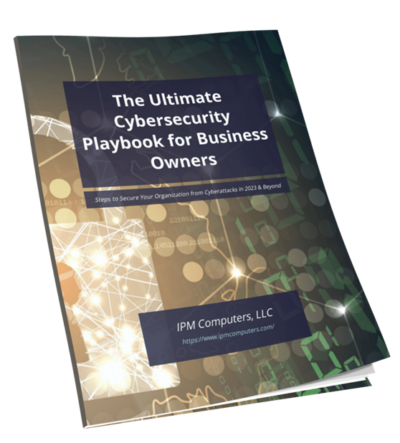Cyber threats loom large, and among the most menacing are zero-day exploits. These exploits pose severe risks to businesses, exploiting vulnerabilities unknown to software developers or security experts.
We want to provide a holistic guide to fortify your business against these malicious attacks.
We’ll delve into what zero-day exploits are, how they work, and the critical strategies to shield your enterprise against their potential devastation.
Understanding Zero-Day Exploits
Zero-day exploits target vulnerabilities that software developers or vendors are unaware of, leaving systems defenseless against these unforeseen attacks. Understanding the mechanics of zero-day exploits involves grasping how they work and the different methods they employ.
Typically, these exploits take advantage of unpatched weaknesses in software, using techniques like code injection, memory corruption, or malicious payloads to compromise systems.
Zero-day attacks encompass various types, such as remote code execution, denial-of-service (DoS), or privilege escalation. Each attack aims to exploit a specific vulnerability to gain unauthorized access, disrupt services, or manipulate data.
The Importance of Protecting Your Business
The consequences of zero-day exploits can be catastrophic for businesses of all sizes. Not only can these attacks cause severe disruptions to daily operations, but they also pose significant financial risks.
Organizations impacted by zero-day exploits may face costly downtime, loss of sensitive data, damage to their reputation, and legal liabilities stemming from regulatory non-compliance or customer lawsuits.
Beyond the immediate operational and financial implications, zero-day attacks can lead to a loss of customer trust, hindering long-term business growth.
Steps to Protect Your Business
Protecting your enterprise against zero-day exploits demands a multi-layered approach. Implementing robust security measures is the first line of defense. This includes regularly updating software with the latest security patches and fixes, effectively sealing potential entry points for attackers.
Staying up-to-date with security patches and updates is critical, as these updates often include fixes for newly discovered vulnerabilities.
Conducting regular security audits and vulnerability assessments helps identify and mitigate potential weaknesses within your infrastructure before attackers can exploit them.
Best Practices for Zero-Day Exploit Defense
Incorporating robust best practices into your cybersecurity strategy significantly enhances your defenses against zero-day exploits. Educating and training employees about cybersecurity threats and best practices is fundamental.
Staff should be aware of phishing attempts, the importance of strong passwords, and the risks of downloading unknown attachments or clicking on suspicious links.
Network segmentation is another crucial practice. Segregating networks into smaller, more manageable sections helps contain and minimize the impact of a potential breach. It also ensures that if one segment is compromised, the entire network isn’t at risk.
Incident response planning is pivotal in reducing the impact of zero-day exploits. Preparing a well-defined incident response plan ensures a structured approach to identifying, responding to, and recovering from security incidents, including zero-day attacks. Regularly testing and updating these plans are equally vital to maintain their effectiveness.
Zero-Day Exploit Prevention Tools and Technologies
Investing in proactive cybersecurity tools is essential to bolster your defense against zero-day exploits. Intrusion Detection and Prevention Systems (IDPS) offer real-time monitoring and analysis of network traffic, swiftly identifying and thwarting suspicious activities.
Next-Generation Firewalls (NGFWs) provide advanced threat detection capabilities, going beyond traditional firewalls to analyze network traffic in-depth, thus blocking potential zero-day threats.
Endpoint Protection Platforms (EPPs) offer endpoint security by detecting, investigating, and responding to advanced threats targeting devices such as computers, mobiles, or servers. These platforms include features like antivirus protection, behavioral monitoring, and threat intelligence to shield endpoints from zero-day exploits.
Zero-Day Exploit Response Strategies
When facing a zero-day exploit, executing a well-prepared incident response plan becomes critical. Swift and efficient execution of the plan minimizes the potential damage caused by the attack.
Conducting immediate damage assessment and initiating recovery procedures are primary steps in mitigating the aftermath of a zero-day attack.
Communication with stakeholders, including employees, customers, and partners, is crucial for transparency, maintaining trust, and managing the crisis effectively.
Wrightsville Beach Cybersecurity: The Importance of Proactive Defense
Understanding the devastating repercussions of zero-day exploits on businesses – from disruptive impacts on daily operations to the substantial financial ramifications – underscores the paramount importance of robust defense mechanisms.
Taking proactive steps to safeguard against zero-day attacks is paramount. Implementing robust security measures along with Wrightsville Beach IT security, staying up-to-date with the latest security patches, and conducting regular security audits form the foundational steps towards bolstering defenses. Equally vital is fostering a security-conscious culture through employee education and network segmentation.
Integrating sophisticated technologies like Intrusion Detection and Prevention Systems (IDPS), Next-Generation Firewalls (NGFWs), and Endpoint Protection Platforms (EPPs) fortifies the cybersecurity posture, ensuring a stance against potential threats.
Swift execution of response strategies, immediate damage assessment, recovery initiation, and transparent communication with stakeholders, along with managing IT in Wrightsville Beach, play pivotal roles in mitigating the impact and swiftly restoring business continuity.
Ultimately, the importance of proactive defense cannot be overstated. Cybersecurity is an ongoing endeavor demanding continuous improvement and adaptation to the threat landscape.





